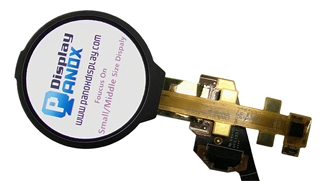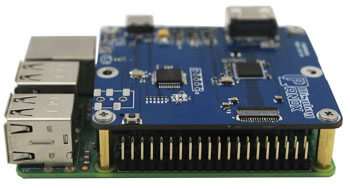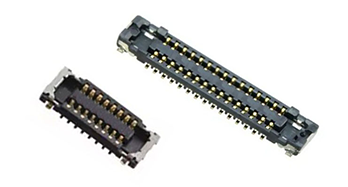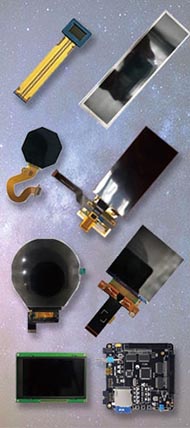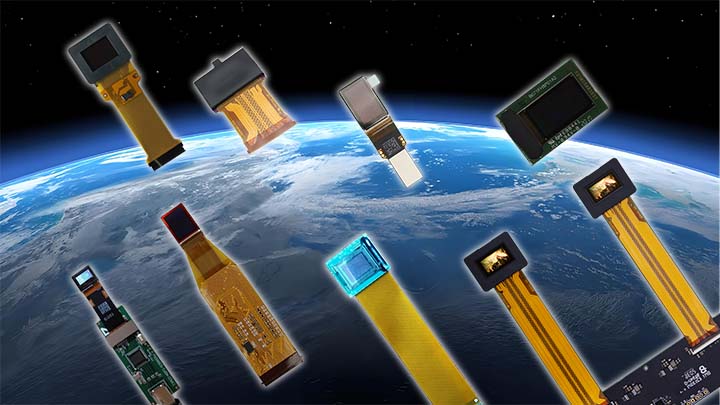
Micro OLED displays are becoming popular in many industries. This is due to the growth of wearable devices, AR/VR, defense optics, and micro-projection technologies.
Micro OLED panels have ultra-high resolution and fast response times. They also have a better contrast ratio and use less power. This makes them great for near-eye display applications.
Manufacturers typically fabricate Micro OLED on silicon substrates, and they also refer to it as OLED on Silicon. Micro OLED has become an important innovation in new display technologies. It has features like small size, high integration, bright colors, and a thin, light design.
Globally, several leading companies are investing heavily in the research, development, and mass production of Micro OLED displays. Below, we take a closer look at the most prominent Micro OLED manufacturers in the world.
SONY
Sony was one of the first companies to enter the Micro OLED market. They introduced OLED-on-silicon displays for electronic viewfinders (EVFs) in 2011. People recognize Sony s Micro OLED products for their top image quality, brightness, and speed. They offer up to UXGA (1600 1200) resolution and over 2000 PPI. Many users widely utilize these products in high-end cameras, industrial vision systems, and military observation devices.
Sony has developed strong skills in Micro OLED encapsulation, CMOS driver integration, and microlens design. This gives a solid hardware base for AR/VR optical modules. Leading global AR device manufacturers widely adopt its displays.

BOE
BOE is one of the largest display makers in the world. It has been quickly growing in silicon-based OLED technology. BOE has many production lines, including the Hefei Silicon-based OLED Microdisplay Project. They offer Micro OLED products that range from 0.39 to 1.3 inches. These products have resolutions of up to 4K+.
BOE designs its Micro OLED solutions for high brightness and reliability. This makes them perfect for AR/VR devices and industrial near-eye displays. The company is working with leading tech firms around the world. They aim to speed up the use of Micro OLED in consumer electronics.
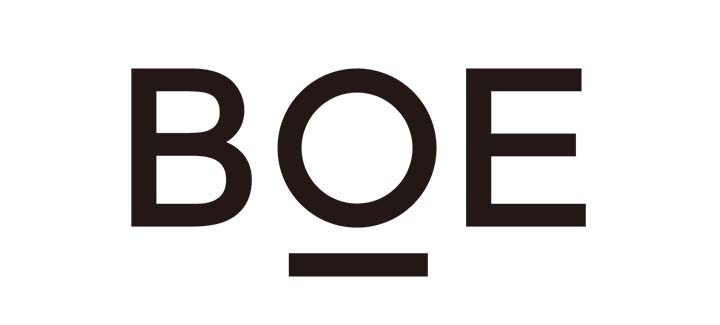
KOPIN
Kopin is a well-known provider of AR and VR optics and display modules. They have nearly ten years of experience in silicon-based Micro OLED technology. Their displays support various resolutions (from VGA to WUXGA), interfaces (MIPI, LVDS, HDMI), and packaging formats, offering excellent compatibility and scalability.
Kopin also delivers complete solutions that include optics, processors, and voice modules targeting military tactical displays, industrial safety glasses, and consumer-grade AR headsets. Kopin has a strong client base in the U.S., Japan, South Korea, and Israel. It is a leading micro-OLED manufacturer with complete system integration skills.

eMagin
eMagin operates from New York. - It is one of the leading Micro OLED manufacturers in the U.S.
- The company specializes in high-quality silicon OLED displays. People use these displays in defense, medical, and industrial fields.
Its special Direct Patterning technology improves brightness and lifespan. It can reach peak brightness levels of up to 10,000 cd/m2. This makes it perfect for night vision systems and helmet-mounted displays.
As a primary supplier to the U.S. military, eMagin features its Micro OLED solutions in numerous defense projects. The company is expanding into AR or VR and training simulation markets. This makes it one of the top micro-oled manufacturers?in North America.

MicroOLED (France)
Based in Grenoble, France, Micro OLED is an innovative company focused on microdisplays and smart eyewear visual solutions. Its proprietary ActiveLook platform delivers lightweight AR experiences tailored for sports, skiing, and cycling.
People know Micro OLED s products for using little power, having high contrast, and working well in different temperatures. Manufacturers already produce them in large amounts for wearables and optical targeting markets. Micro OLED is a leading Micro OLED brand in Europe. They are working hard to bring next-gen low-power reflective AR glasses to market.

Seeya
Founded in 2016, Seeya is one of China s first companies to achieve mass production of Micro OLED displays. Seeya offers a full range of displays from 0.39 to 1.03 inches. Smart headsets, night vision systems, and industrial optics use these displays.
The company holds multiple proprietary patents and core technologies, including OLED encapsulation, driver IC design, and high-uniformity evaporation. Its Micro OLED panels provide contrast ratios greater than 10,000:1. They also cover over 90% of the DCI-P3 color range, giving excellent image quality. Seeya is a highly competitive micro-oled manufacturer?in the Chinese market.

Sidtek
Sidtek is a subsidiary of SmartSens, a leader in image sensors. It uses SmartSens's strengths in CMOS processes, silicon encapsulation, and optoelectronic integration. This gives Sidtek a natural advantage in developing Micro OLED technology.
Sidtek designs its Micro OLED displays for industrial and medical use. They provide excellent performance in resolution, image delay, and power efficiency.
Many industrial vision clients know Sidtek. The company plans to grow into AR/VR. They aim to create a full near-eye optical system.

Looking for a Micro OLED Solution? Contact Panox Display!
Panox Display is a professional supplier of small and medium display technologies. We provide complete solutions for choosing Micro OLED displays, developing controller boards, and integrating systems. We maintain long-term partnerships with global micro-oled manufacturers, supporting flexible configurations across multiple sizes, interfaces, and applications.
Panox Display is a reliable partner for various fields. It doesn't matter if you work in AR/VR, medical imaging, industrial optics, or defense technologies. We help you create high-performance Micro OLED solutions.
|
Panel model |
Brand |
Interface |
Type |
Size (inch) |
Resolution |
P.S |
|
S032WEM01 |
Seeya |
MIPI/RGB |
Micro OLED |
0.32 |
800×600 |
|
|
Sitek |
RGB |
Micro OLED |
0.39 |
1024×768 |
Full Color/Monochrome |
|
|
BOE |
MIPI |
Micro OLED |
0.39 |
1920×1080 |
Highest PPI =5644 |
|
|
Epson |
TTL |
LCOS |
0.47 |
800×600 |
|
|
|
BOE |
SPI, MIPI |
Micro OLED |
0.49 |
1920×1080 |
|
|
|
Seeya |
MIPI |
Micro OLED |
0.5 |
1600×1200 |
|
|
|
Sony |
Mini LVDS |
Micro OLED |
0.5 |
1024×768 |
|
|
|
S060LDM01 |
Seeya |
MIPI |
Micro OLED |
0.6 |
1920×1080 |
|
|
Sony |
Mini LVDS |
Micro OLED |
0.71 |
1920×1080 |
200 nits brightness version |
|
|
Sony |
Mini LVDS |
Micro OLED |
0.71 |
1920×1080 |
500 nits brightness version |
|
|
Sony |
Mini LVDS |
Micro OLED |
0.71 |
1920×1080 |
3000 nits brightness version |
|
|
BOE |
MIPI |
Micro OLED |
0.71 |
1920×1080 |
|
|
|
S072WCM04 |
Seeya |
MIPI |
Micro OLED |
0.72 |
1920×1080 |
|
|
S103WAM01 |
Seeya |
MIPI |
Micro OLED |
1.03 |
2560×2560 |
|











